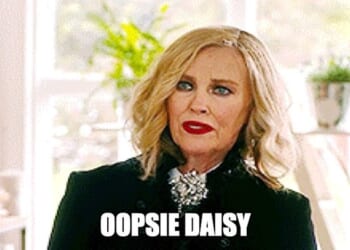Gregory Stafford MP is a Member of the Health and Social Care Select Committee, and a former NHS Director.
In his account of Julius Caesar crossing the Rubicon, the Roman historian Suetonius describes Caesar standing on the river’s edge, wavering before taking a step with irrevocable consequences.
As Parliament prepares for the Third Reading of Kim Leadbeater’s Bill to legalise assisted suicide, we too stand on the banks of our own Rubicon. To cross it would not only alter our moral compass, but fundamentally change the character of the National Health Service – a change that has not yet received sufficient scrutiny.
Facilitating assisted suicide within the NHS would be at odds with its founding ethos and risk fracturing the vital social contract between clinicians and patients; a contract built on trust, care, and the preservation of life.
As a member of the Health and Social Care Select Committee and a former senior NHS Director, I have three serious concerns about the implications of this Bill for our health service.
First, it risks undermining the patient-clinician relationship.
When we walk into a GP surgery or hospital, we entrust our wellbeing to professionals who we believe will recommend treatments aimed at restoring health, not hastening death. This expectation is deeply rooted in both medical ethics and public understanding. The Hippocratic Oath, with its commitment to “give no deadly medicine if asked,” remains symbolic of this trust. Florence Nightingale famously wrote that the first requirement of a hospital is that it “should do the sick no harm.” And the founding clause of the 1946 National Health Service Act defines its purpose as improving the “physical and mental health of the people.”
By introducing assisted suicide services into that framework, we would be breaking with a tradition of care that has endured for centuries. Indeed, during the Committee Stage of her Bill, Kim Leadbeater was compelled to table an amendment allowing the Health Secretary to reinterpret the NHS Act to accommodate assisted dying services. That alone should give us pause: the legislation would permit precisely what previous generations of lawmakers and doctors expressly forbade.
It is already the case that trust in clinicians is uneven, particularly among some minority communities, as shown by the lower uptake of Covid-19 vaccines. If doctors are seen as potential agents of death as well as care, trust will weaken further, especially among the most vulnerable.
Second, regardless of one’s personal views on assisted suicide, now is a dangerous moment to legislate for it.
Just last week, we heard that an NHS Trust has been forced to reduce palliative and end-of-life care.
Across the country, such care is patchy, our ageing population continues to strain adult social care services, and the NHS remains under immense pressure. In that context, the legalisation of assisted dying risks creating a quiet, insidious pressure on patients who feel they are a burden, and on families and institutions conscious of stretched resources. It risks turning an option into an expectation. In truth, it would be an abdication of the state’s duty of care.
It would also divert capacity. The impact assessment for the Bill estimates that up to 145,888 hours of NHS staff time per year – equivalent to over 6,000 working days – could be redirected to administering assisted suicide services. That’s time taken away from delivering treatment to those who want to live.
Third, the Bill raises serious concerns around conscience for NHS professionals. While the initial duty of referral was removed at Committee Stage, a new duty to “inform” patients about how and where to access assisted suicide services remains. For many staff, this is a distinction without a difference. We rightly act to close websites that provide instructions for suicide. Yet under this Bill, doctors and nurses may be required to direct patients towards state-facilitated means of ending their lives. That runs counter to the vocation of many who enter healthcare precisely to save life and relieve suffering.
The NHS is not merely a service; it is a moral institution. To change its principles in response to the campaigning of a few is to risk reshaping its purpose for everyone.
MPs who, like Caesar on the banks of the Rubicon, remain undecided, should reflect on the gravity of what lies ahead. Caesar’s choice led to civil war and the end of the Roman Republic. The consequences of this decision may not be as dramatic, but they would be permanent.
After crossing the Rubicon, Caesar reportedly said: “the die is cast.” If Parliament legalises assisted suicide, we will have cast off the NHS as we know it, and in doing so, may place some of the most vulnerable in our society in harm’s way.
That is not a risk I am willing to take. I hope the majority of my colleagues will feel the same.




![‘It’s a Recipe for a Hundred Years of National Dominance’: Stephen Miller [WATCH]](https://www.right2024.com/wp-content/uploads/2025/05/Stephen-Miller-Completely-Obliterates-CNN-Host-Over-Her-Illegal-Immigration-350x250.jpg)

![Trump Posts Hilarious Pope Meme, Leftists Immediately Melt Down [WATCH]](https://www.right2024.com/wp-content/uploads/2025/05/Trump-Posts-Hilarious-Pope-Meme-Leftists-Immediately-Melt-Down-WATCH-350x250.jpg)



![Mother Breaks Silence After Three Daughters Killed During Father’s Custody Visit, Memorial Held [WATCH]](https://www.right2024.com/wp-content/uploads/2025/06/Mother-Breaks-Silence-After-Three-Daughters-Killed-During-Fathers-Custody-350x250.jpg)





